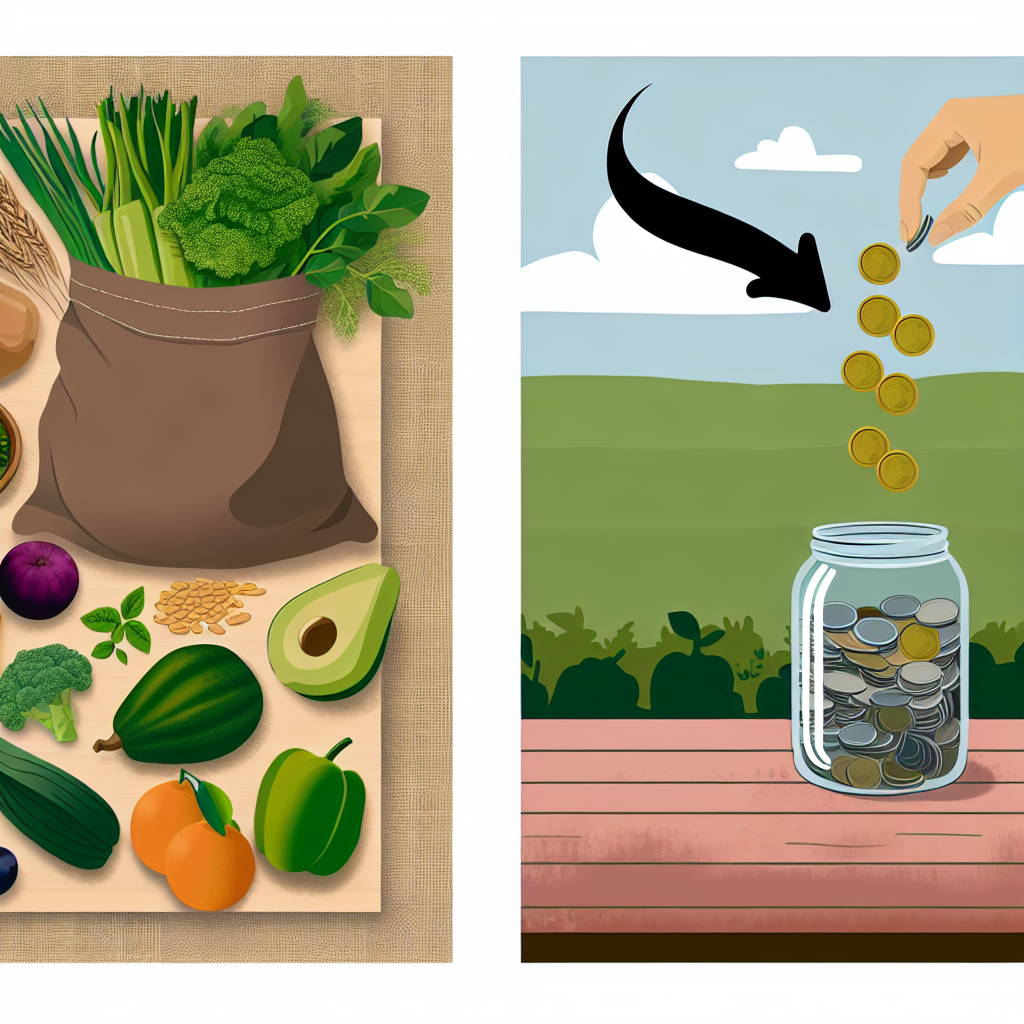10 Surprising Ways to Cut Your Grocery Bill While Going Green
Introduction
Hello, money-savers and those who love the Earth! Get ready to explore fun ways to save money on groceries and help the planet at the same time! We’re about to jump into a fun adventure where your grocery bills shrink and your carbon footprint gets even smaller.
Are you excited for the greenest grocery journey ever? Let’s go!
1. Try Plant-Based Meals
Friends, we need to talk about those steak dinners. They cost a lot and aren’t so great for Earth. But trying meals with more plants in them can save you money and help reduce pollution.
Looking for ideas? How about “Chickpea Curry” or “Zucchini Noodles”? These meals are simple, cheap, and super yummy. Less moo-moo means more hooray for the environment!
2. Buy Seasonal Food
Have you ever bought expensive blueberries in winter? That’s when your money disappears fast! Buying what’s in season, or ready to eat, is cheaper and helps local farmers, which reduces travel pollution.
In fall, buy apples and pumpkins. In summer, go for strawberries. In winter, try root veggies. Visit farmers’ markets for fresh and charming produce!
3. Buy in Bulk
Hey, smart shoppers! Buying in bulk is like finding treasure. Get lots of grains, nuts, and seeds. It’s better for the Earth because there’s less packaging waste.
Fill up your bulk bags with lentils for soups and rice for sushi nights at your next shopping trip.
4. Use Reusable Bags and Containers
Plastic bags are boring and not cool. Use reusable shopping bags and become an eco-friendly hero at the store. You can also use jars and containers for your bulk items. You can even make some from old t-shirts to make them look unique.
5. Start a Home Garden
Why buy parsley packets when you can grow your own herbs and veggies? It’s like having your own money machine. Plus, it’s awesome for the environment. Snip basil for pasta or grab tomatoes for salads. They’ll taste like money-saving and wisdom from nature!
No need to be an expert gardener. Start with mint or basil. They’re easy to grow and look nice.
6. Plan Meals Before Shopping
Have you ever wandered the aisles, leaving with a bunch of hummus and no dinner plans? Planning meals means fewer last-minute fast food runs and less waste.
Make a weekly meal plan, like three veggie dishes, two with meat, and a surprise item. Your list—and wallet—will thank you.
7. Use Natural Cleaning Products
Saving on groceries also means rethinking what you buy. Cleaning products cost a lot and sometimes aren’t eco-friendly. Make your own with baking soda, vinegar, and lemon.
Use a mix of vinegar and water for surfaces or make a citrus cleaner for fresh smells. You’ll save money and make your home smell naturally fresh.
8. Shop with a List and Stick to It
Say no to impulse buys! Go grocery shopping with a list and stick to it. Having a plan helps you avoid temptation and silly regrets.
Know your store layout and avoid spots like the “new arrivals” section, which can be very tempting.
9. Store Food Properly to Reduce Waste
Don’t let your fridge become a home for forgotten veggies and leftovers. By storing food correctly, you can save money.
Keep veggies fresh with airtight containers, freeze fruits for smoothies or try canning. Canning keeps food yummy and waste low.
10. Support Local and Sustainable Brands
Say goodbye to veggies from who-knows-where. Buy local and support producers who are eco-friendly. It gives you better quality stuff and helps the Earth too.
Look for eco-friendly labels like USDA Organic, Fair Trade Certified, or Rainforest Alliance. These signs show you’re making a good choice.
Conclusion
Now you know some awesome ways to save money and be eco-friendly. You don’t need big changes, just small tweaks and fun ideas in your life.
Try these tips, be patient, and watch your grocery bill and carbon footprint get smaller and smaller—just like a fun rollercoaster ride! Have your own tips to share? Post them in the comments—we love sharing wisdom because it grows when shared.
Cheers to living smart and eco-friendly!









